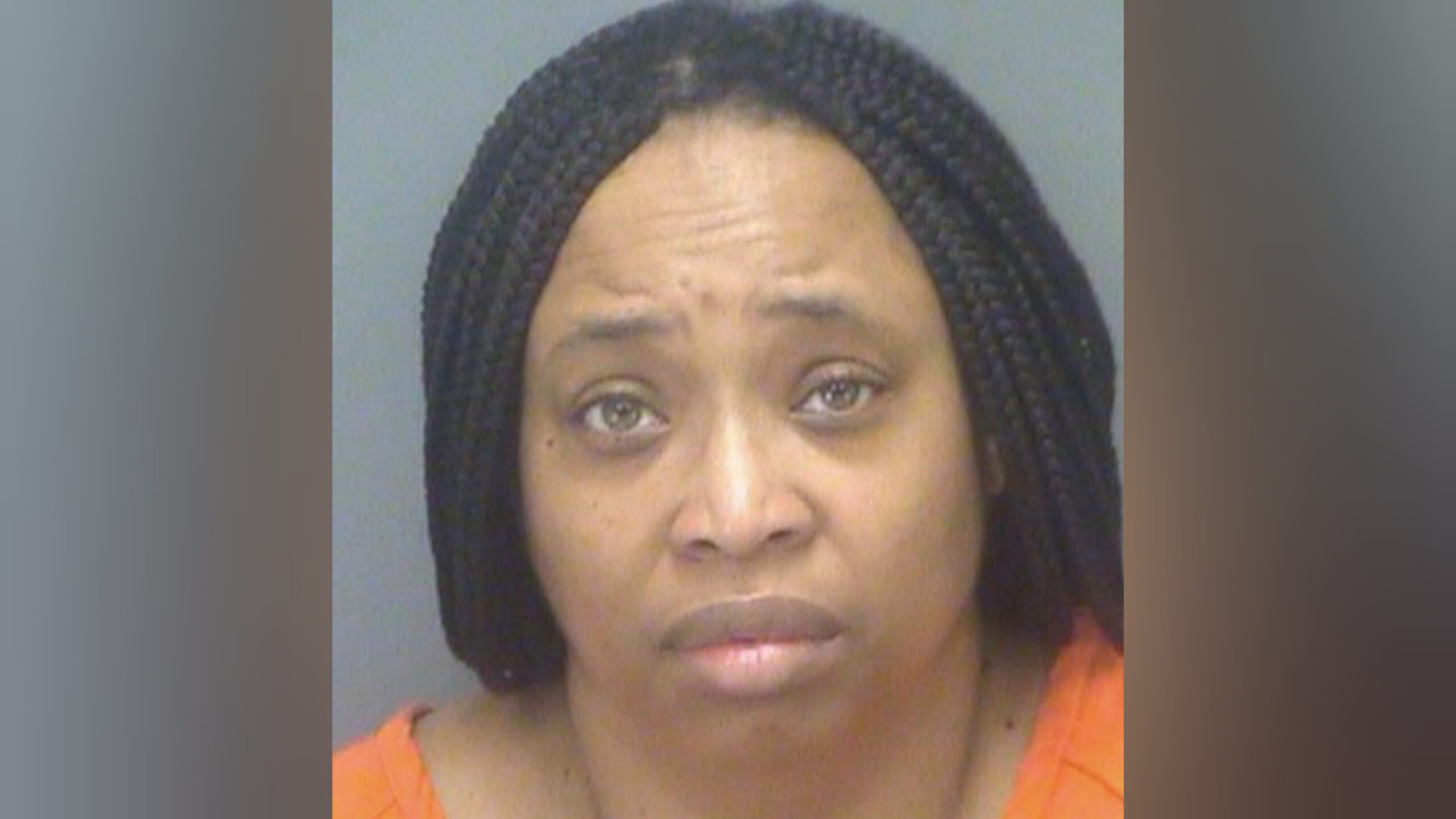A federal judge sentenced a Tampa, Florida woman to 6 1/2 years in prison Wednesday for trying to hire a hitman to murder her ex-boyfriend’s wife.
DeAnna Marie Stinson was also ordered to serve three years of supervised release after she completes her sentence, and to pay more than $12,000 in restitution and a fine.
U.S. District Judge Steven Merryday noted the difficulty of fashioning the right punishment. He said he was actually sentencing two people, as lawyers described two different versions of the same person.
One was a highly educated businesswoman, deeply involved in her church, who had loving and supportive parents and friends. The other was a woman for whom a prosecutor used words like “calculating” and “brazen” to recount her repeated efforts to facilitate killing someone.
“It is true these two people exist,” Merryday said. “They are actually the same person.”
Stinson, 51, pleaded guilty in January to a single charge of murder-for-hire. Prosecutors sought a 9-year sentence, the high end of what federal guidelines suggested.
Stinson admitted that she made several transactions last summer on a website that purported to offer hitman services. The website, which was not named in court , existed on the “dark web,” a term that refers to online marketplaces that allow people to buy illegal goods and services.
SEE ALSO: Florida Woman Arrested For Trying To Hire A Hitman On The Dark Web
In court, Assistant U.S. Attorney Lisa Thelwell displayed screenshots from the website. Banner photos showed a spent bullet shell casing, a man in a hoodie brandishing a handgun and other menacing images. A pricing page detailed the minimum and average costs for various acts.
“Death by shooting,” was listed at a minimum of $5,000. “Death by sniper” was $20,000. “Beating” was $2,000.
Despite its sinister marketing, the website was a scam, aimed at bilking unsuspecting would-be murderers.
Stinson didn’t know that. She made several posts on the website’s public message forum seeking to order a hitman for a “Florida Job.”
She made five bitcoin transactions totaling $12,307.61 to have the intended victim murdered. She included the victim’s name, address and a photo. The victim was not named in court records.
“Do not do at the home,” one message read. “Any place else is fine. Need completed during July — preferably between July 5th and 11th.”
FBI agents were alerted to the messages. They interviewed the victim and learned that her husband previously had a romantic relationship with Stinson.
In August, an undercover agent contacted Stinson, posing as a hitman.
In a recorded phone call played in court, the agent told Stinson he’d been watching the couple and asked a series of questions about where they lived and whether they had kids or a dog in their home. He said he would make it look like a robbery. He sought assurance that Stinson wanted him to go through with it, that she wouldn’t back out. She said she did.
He said he wouldn’t tell her exactly when it would happen. He told her to “act surprised” when she found out.
“Don’t do anything different,” he said. “She’ll be dead within two weeks.”
Stinson was arrested in September. She had never before been in trouble with the law.
“I cited the old adage, ‘hell hath no fury like a woman scorned,’” Federal Defender Alec Hall told the judge Wednesday. “I think that’s what happened in this case.”
Stinson’s parents and friends packed two rows of seats in a Tampa courtroom. Several of them addressed the judge. They spoke of a woman who held a master’s degree in accounting, who ran her own financial services business, who served as the chief financial officer for her church and strove to help others. Several who spoke were pastors and religious leaders who had known Stinson for decades.
“What she did was wrong,” said Earl Mason, of the Bible-based Fellowship Church of Temple Terrace. “God made sure it didn’t go as far as it could have gone.”
Stinson stood in the courtroom clad in orange, bowing her head at times and dabbing at her eyes with a tissue.
The prosecutor read a lengthy letter from the intended victim. She described a visit last summer from an FBI agent who informed her of the threat. She spoke of a constant fear that harm might come to her. She would later add cameras, alarms and new locks to her home. She spoke of continuing bouts of anger and grief. Her family became concerned about her well-being.
She knew Stinson, having seen her at the church she and her husband attended. But there had never been strife between them.
“This entire event has been shocking, disturbing and caused undue stress for me,” she wrote.
Stinson apologized in court.
“I wish there was another word for sorry,” she said. “I am truly sorry that my brokenness could bring discord to their family.”


Tell us your thoughts...